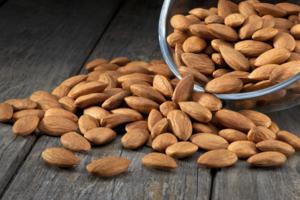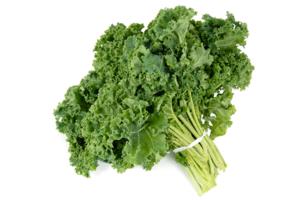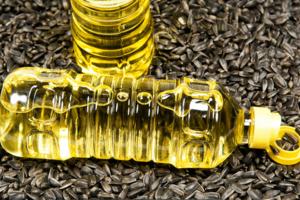Health Advice
/Health

On Nutrition: More on oxalates
A recent column on oxalates — natural components in plant foods that, when consumed in excess, can interfere with calcium absorption and contribute to kidney stones — brought these questions from readers:
“Thanks for your recent article on oxalates and calcium. I have osteoporosis and I'm trying to get enough calcium, magnesium and ...Read more

On Nutrition: What is the Mediterranean diet, really?
My husband and I traveled to Italy in 2019. Everything was wonderful, even the “house” wine in restaurants. We were surprised, however, that much of food we were served did not exactly match what we expected in this Mediterranean country.
In particular was the abundance of meat products, especially cold cuts, in the meals provided by our ...Read more

On Nutrition: Behind the news on whole dairy foods
One of my first jobs as a registered dietitian was with the School Food Service Program in Santa Fe, New Mexico. I helped educate schools on nutrition guidelines and traveled around the state to evaluate school feeding programs according to USDA regulations.
That was before 2012 when Congress passed legislation to eliminate whole and reduced-...Read more

On Nutrition: Oxalates: Bad for bones?
Kathy C. from Indiana writes: “Recently, I read that people with osteopenia should avoid foods with oxalates. It's hard for calcium to be absorbed. The partial list includes healthy food that I like to eat: spinach, beets, tofu, cocoa, kiwi, oranges, pineapple, peanuts, cashews. Is there a safe amount that can be eaten? How often? Thank you....Read more

On Nutrition: Good news about eggs
Why do we associate eggs with Easter? In ancient times, eggs were a sign of new life and rebirth. Christians eventually came to adopt the egg as a symbol of the Easter story when Jesus miraculously rose from the tomb.
Makes sense. Some experts have called eggs “a miracle of nature.” And lest I go down a rabbit trail of why Easter bunnies ...Read more

On Nutrition: Beef tallow
In a recent column on seed oils, I concluded that we need to continue to follow the research and that it pays to keep up with the science. I then received a letter from Mike C. in Nebraska who reminded me of certain social media influencers who are strongly against seed oils.
“Seed oils are highly processed, while beef tallow is not,” he ...Read more

On Nutrition: Corny food jokes, 2025 edition
No joke, I look forward to this column every year. And I cherish the contributions from you readers.
Terry W. from St. Louis writes: “I so enjoyed your column about corny jokes. My mom loved puns and would use them as often as she could. One that has to be heard instead of read is ‘I thought it was an oyster but it’s not!”
Lori M. in ...Read more

On Nutrition: All y'all in Texas
While visiting an eating establishment during our recent visit to Texas, I noticed a framed map of the United States on the wall. It showed two areas. The most noticeable was an embellished boundary of this 28th state identified as TEXAS. The rest of the map was simply “Not Texas.”
I can see what makes the people of this state so proud. ...Read more

On Nutrition: Celebrate the green
I like the theme “Food Connects Us” for this month’s celebration of National Nutrition Month, sponsored each March by the Academy of Nutrition and Dietetics. And this month also coincides with another observance — Saint Patrick’s Day.
This particular holiday began in Ireland to commemorate Saint Patrick, a priest and missionary in ...Read more

On Nutrition: What about kombucha?
In a recent article, I explained the technicalities of identifying a food as a probiotic. Probiotics are “good” bacteria that benefit our health. And many of these beneficial organisms reside in fermented foods. Yet not all fermented foods can technically be called “probiotics.”
Why? In order for a food to be classified as a probiotic, ...Read more

On Nutrition: What's the deal with seed oils?
I’m on vacation. So I have no idea why I decided to write on such a controversial topic this week. I would guess, though, that I’m not the only one scratching my head over the current banter against seed oils.
As you might guess, seed oils are liquid fats that come from plant seeds. The most notable are derived from canola, corn, cottonseed...Read more

On Nutrition: Supplement questions
My buddy Al sent this response to a recent column on vitamin C:
“You wrote, ‘unlike most animals, our human bodies do not have the ability to manufacture vitamin C.’ Well, I am a party animal!! Do I have the ability to make a little of my own?
“Seriously now, I have 1,000 mg packets (of vitamin C) and it reads ‘for daily support.’ ...Read more

On Nutrition: Probiotics, technically
We’re never too old to learn. That’s why I appreciated the kind letter from Professor Emeritus Bob Hutkins from the Department of Food Science and Technology at the University of Nebraska.
“Thank you for your informative columns that I read regularly in the Lincoln Journal Star. The probiotics quiz was spot on except for the question ...Read more








